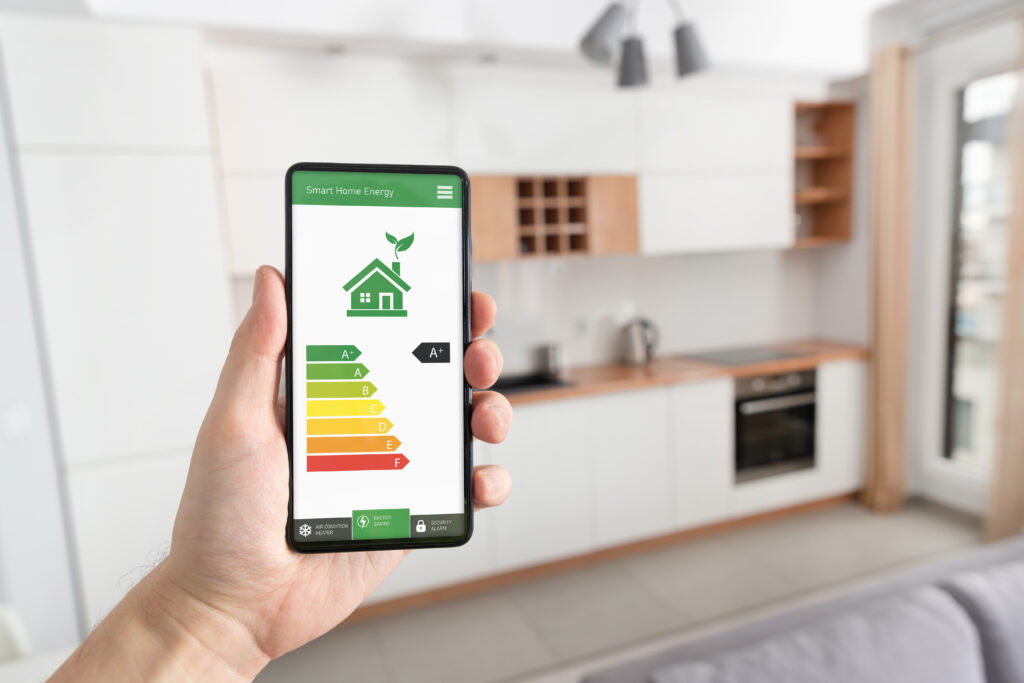With the increasing emphasis on green mortgages and the benefits of sustainable homeownership, understanding Energy Performance Certificates (EPCs) is more important than ever. EPC ratings impact both homeowners and landlords, particularly as the UK government moves towards stricter energy efficiency regulations.
The most significant legislative change relates to landlords, who were previously expected to upgrade their properties to a minimum EPC rating of C by 2025 for new tenancies and 2028 for existing ones. However, in 2023, the government dropped these deadlines and announced a more realistic target of 2030 to allow landlords more time to make necessary upgrades.
This raises the question: What is an EPC, and why does it matter for property owners and buyers?
When Were EPCs Introduced?
EPCs were introduced in England and Wales on 1 August 2007 as part of Home Information Packs (HIPs) for domestic properties with four or more bedrooms. Although HIPs were abolished in 2010, the requirement for EPCs remained in place.
Since then, EPCs have become a key factor in property transactions, helping buyers, sellers, and landlords assess the energy efficiency of homes and understand potential cost-saving improvements.
What Do EPCs Show?
An EPC lasts for 10 years and provides an A-G scale to indicate a property’s energy efficiency, with ‘A’ being the most efficient and ‘G’ the least. The certificate also includes recommendations on how to improve efficiency, such as:
- Upgrading to double or triple glazing
- Installing loft or wall insulation
- Switching to energy-efficient lighting
- Adding solar panels or heat pumps
While these improvements can significantly reduce household energy bills, the initial costs can be high, sometimes reaching tens of thousands of pounds. For landlords, these costs need to be carefully weighed against potential rental yields and legal requirements.
How Are EPC Ratings Assessed?
The UK has some of the oldest building stock in Europe, with 36% of homes built before 1945 and at least 75% expected to still be in use in 2050. This means that many properties struggle to meet modern energy efficiency standards without significant retrofitting.
One of the biggest criticisms of EPCs is that they are generalised assessments and do not always take into account the unique characteristics of older homes. For example, some historic buildings use traditional materials and insulation techniques that are just as effective as modern solutions but are not reflected in an EPC rating.
Additionally, adding insulation to solid stone walls can trap moisture inside the building, which can lead to damp problems rather than energy efficiency gains.
Are EPC Ratings Accurate?
Concerns have been raised about inconsistencies in EPC assessments. Research by Spec, a property technology company, revealed significant inaccuracies in how EPC ratings are calculated. Their study found that:
- One in four EPCs records the property size inaccurately by more than 10%.
- The average discrepancy in property area is 8.6% (or 87 sq ft), which can impact energy efficiency calculations.
- Thousands of landlords may unknowingly be breaking the law due to incorrect EPC ratings.
Anthony Browne, senior adviser to Spec, stated:
“It’s not a question of if your EPC is measured inaccurately, but by how much. Inaccurate EPCs present serious challenges, not just for property professionals and consumers, but also for environmental policies.”
These inaccuracies mean that landlords and homeowners could be penalised unfairly, especially when EPC ratings determine mortgage eligibility, rental compliance, and property values.
What’s the Issue?
One of the biggest flaws with EPCs is that they measure estimated energy costs, not carbon emissions.
For example, switching from an oil-fired boiler to an electric one may improve an EPC rating, but if the electricity is generated from fossil fuels, it could increase the home’s overall carbon footprint. This contradiction raises concerns about whether EPCs truly reflect a home’s environmental impact.
Additionally, the cost of making energy efficiency improvements is high. Most upgrades take decades to pay for themselves, meaning homeowners and landlords must carefully consider whether the long-term savings justify the upfront costs.
The Future of EPCs: What to Expect
Despite their limitations, EPCs are likely to remain a core requirement for property transactions. However, there is growing pressure on the government to improve their accuracy and relevance. Proposals for reform include:
- A shift towards measuring actual carbon emissions rather than just estimated energy costs.
- More accurate property assessments using modern technology.
- Government grants or incentives to help homeowners and landlords afford necessary improvements.
For landlords, the new 2030 EPC deadline provides more time to plan upgrades, but rental properties that do not meet the required standard by then could become unlettable.
For homeowners, improving a property’s EPC rating could become increasingly important when applying for mortgages, especially as more lenders introduce green mortgage incentives.
Moving Forward
Focusing on making UK homes more energy-efficient is a positive step, particularly in light of rising energy costs and the push towards net-zero emissions.
However, if EPCs are to remain the standard for energy efficiency, they must be improved to provide more accurate and meaningful data.
If you’re unsure about how EPC changes impact you, whether you’re a homeowner, buyer, or landlord, speaking to an expert adviser can help clarify your options.
To learn more about EPC ratings, green mortgages, or making your home more energy-efficient, call us on 0808 149 8381 or enquire online today.


